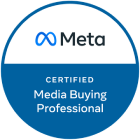Sections
Using the Keyword Planner Tool
Google Ads recently announced that it is no longer providing data on all search terms. This got a lot of us marketers all worked up…and rightfully so! We live and breathe the search term report for keyword expansion and also to ensure we are not wasting money on irrelevant terms.
With Google no longer providing data on all searched terms that prompted your ads to be displayed – and even clicked – makes using the Keyword Planner tool more important than ever before.
As a digital marketing agency, we’ve always recommended that businesses who advertise on Google Ads use its Keyword Planner tool. The Keyword Planner is a useful, built-in aspect of Google Ads that helps you research the best keywords to use in your pay per click (PPC) campaigns.
Why Is the Keyword Planner Tool So Important Now?
Like we said above, using the Keyword Planner has always been a best practice in creating a Google Ads campaign. Here’s how the tool works:
- You enter a keyword into the Keyword Planner that is relevant to your product, service, or brand.
- The Keyword Planner provides suggested keywords to use in your PPC campaigns, complete with estimated search volume for each keyword, as well as the current estimated cost per click (CPC).
- Based on this information, you select the best keywords for your brand and budget, then create your campaigns. It also gives you a list of keywords that should be negative keywords, based on their lack of relevancy to your brand.
Sounds like a great tool right? Well it is!
But you see, Google has quietly made changes to the Google Ads search term report beginning this month, which it only notified its advertisers about in a vague message in the account alerts section that reads:
“Changes to the search term report. We are updating the search terms report to only include terms that were searched by a significant number of users. As a result you may see fewer terms in your report going forward.”
This message has made a lot of digital marketers, including ourselves, concerned about how less information in search term reports could mean that advertisers inadvertently spend too much budget on low-search volume keywords.

Here are our main concerns:
- Google’s alert says it’s only showing data in the search term report for keywords that received a “significant” amount of searches. What exactly does “significant” mean to Google? Is it a set number that’s applied to all advertisers? Is it a percentage of search traffic you received in your campaigns?
- If you work in a niche market, you may have important but low search volume keywords that generate clicks and leads. But how are you supposed to stay on top of these keywords in Google Ads moving forward if the search term report no longer provides data about them?
- If you have a keyword that you don’t get search report data on that has a high CPC, how are you supposed to know whether or not it’s worth it to keep that keyword in your campaigns if you can’t see how many times it was searched?
Our Solution – Use a Combination of Google’s Keyword Planner Tool and Third-Party Tool, Ahrefs
If you see that your search report is lighter now that Google isn’t showing all data to advertisers, the Keyword Planner is going to become your new best friend. By using it, you can find keywords with high search volume, and incorporate them into your campaigns so you can track the performance of those keywords. Then, look at the low search volume keywords that the Keyword Planner displays. Add these keywords as negative keywords in your ad, so your ads don’t show up for keywords you won’t get data on. You can adjust and eliminate the negative keywords as you go, if you notice that your clicks drop.
We also recommend a Third-Party PPC tool called Ahrefs. Similar to the Keyword Planner, Ahrefs lets you type in terms related to your business, and suggests related search terms and their search volume. Follow the same process listed above by adding high search volume keywords to your campaigns, and adding low search volume keywords as negative keywords.
While the Keyword Planner is free and Ahrefs is a paid solution, we find that the latter pays for itself in terms of the value it brings to PPC advertisers by providing useful data for optimizing pay per click ads like Google Ads.
Need Google Ads Help?
For some advertisers who currently manage their Google Ads in house, the new changes to the search report may make it harder to perform this important marketing task. If you need help with your Google Ads campaigns, we’re here for you. Simply call us today at (949) 484-9104 or fill out the form here.







